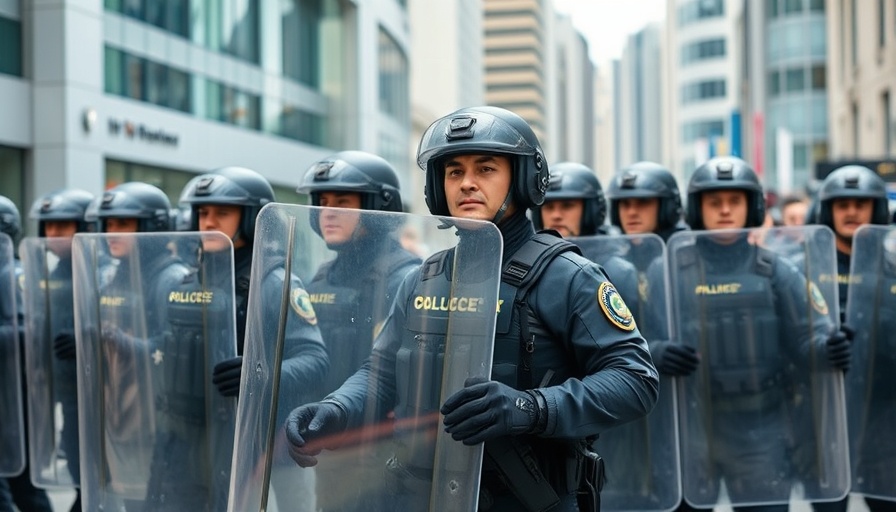
Understanding the Legal Battle Over Military Deployment in California
The ongoing legal battle between California Governor Gavin Newsom and former President Donald Trump highlights critical issues surrounding military involvement in domestic matters. This trial reignites an essential debate on whether the military can engage in civilian law enforcement, especially in the face of rising tensions over immigration and protests.
The Posse Comitatus Act: A Central Point of Contention
The Posse Comitatus Act, enacted in 1878, restricts the military from performing law enforcement functions on American soil unless authorized by Congress. California's lawyers allege that Trump's administration directly violated this act by employing troops to enforce immigration laws and maintain order during the protests in Los Angeles. They aim to secure a permanent ban on such deployments, arguing that military interventions exacerbate tensions rather than provide security.
Background: Escalating Tensions in California
Newsom's lawsuit stems from the June 2025 events when protests against immigration raids led to a significant military response. The engagement saw approximately 4,700 troops, including 700 U.S. Marines, dispatched to the streets of Los Angeles, a move that Newsom argues was unconstitutional and indicative of Trump's authoritarian tendencies. The deployment came amid heightened concerns about public safety and government overreach, further polarizing opinions on military involvement in civilian affairs.
Implications for National Security and Civil Rights
This trial could set a legal precedent that affects not only California but the entire country. As Trump promotes his commitment to security during the upcoming 2028 Olympic Games in Los Angeles, the outcome may redefine the scope of military authority in civilian law enforcement nationwide. Critics warn that a ruling in favor of Trump’s approach could embolden further military assertiveness, diminishing civil rights across the board.
The Past and Future: An Ongoing Struggle
This issue is not new; the history of military involvement in domestic law enforcement has been fraught with contention, dating back decades. The situation raises questions about the militarization of police and whether such practices create a safer society or contribute to a climate of fear and division. As America grapples with these challenges, the news cycle continues to reflect deepening political divides and emerging calls for reform.
Common Misconceptions: The Role of Military in Civilian Life
Many may misunderstand the military's role in civilian life, assuming that its presence equates to safety. However, history demonstrates that military involvement often inflames situations rather than alleviates them. This perception is crucial for citizens and lawmakers alike as they evaluate the implications of such actions, calling for a careful balance between national security and protecting civil liberties.
Call to Action: Engage in the Dialogue
As the trial unfolds, it is essential for citizens to stay informed and engage in discussions about the military's role in our society. This case sheds light on significant constitutional issues at stake, prompting a necessary discourse on civil rights, state sovereignty, and the limits of military authority. To foster a better understanding, individuals are encouraged to participate in forums and discussions addressing these pressing matters, as active involvement can shape the future of law enforcement in America.
 Add Row
Add Row  Add
Add 




Write A Comment